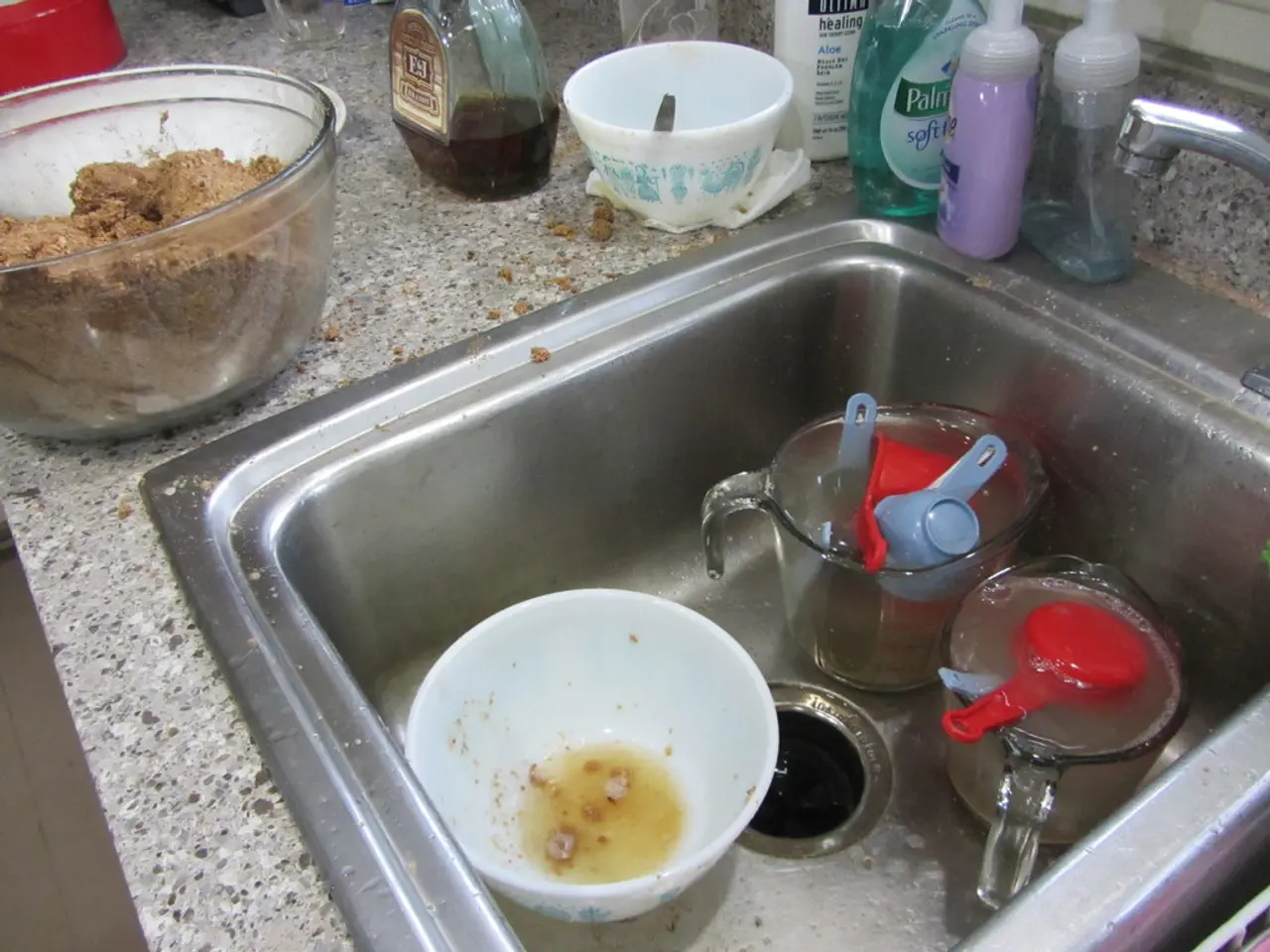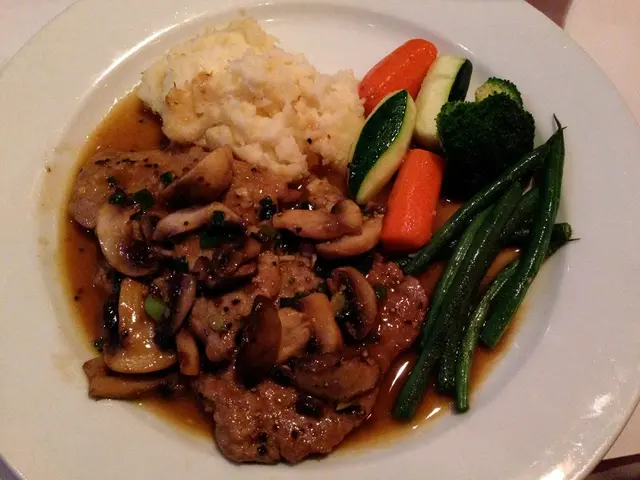Transmissible through a kiss: Shocking characteristics of bacterial and viral entities residing within the human bodily system, linking sleeplessness and anxiety.
Life's Unseen Companions: The Invisible Crew Affecting Your Mental Health and Other Aspects
Living on our skin, mucous membranes, and within our intestines, a collection of bacteria, viruses, and fungi coexist. This crew is known as the microbiota, or better known in everyday language as the microflora. Weighing approximately 200 grams in a human, scientists consider the microbiota to be nearly omnipotent due to its role in most processes within our body and its control over many of them.
The recent surge in allergic diseases, currently affecting up to 40% of Earth's inhabitants, is primarily linked to the destruction of the microflora. Dr. Olga Zhogoleva, an allergist-immunologist and candidate of medical sciences, commented, "The microbiota gets destroyed by fast food, uncontrolled use of antibiotics, and other companions of modern life. With the damaged microflora, the immune system gets confused, leading to the onset of allergic reactions and potentially causing several other problems."
As we continue to unravel the mysteries of the microorganisms living amongst us, new insights into their roles within our bodies have emerged.
Symphony of Life: A Couple's Secret Bond
An international team of scientists conducted a study involving several hundred pairs of newlyweds. In half of the newlywed couples, one of the spouses suffered from sleep problems and anxiety disorders. The second group consisted of husbands and wives without noticeable anxiety. All participants provided saliva samples to determine the composition of their oral microflora and the level of cortisol ("stress hormone").
Six months later, the participants underwent testing and provided new samples. The results showed:
- in couples where one spouse suffered from anxiety and insomnia, the other partner eventually developed similar problems;
- the oral microflora of the initially calm spouse changed, becoming similar to the microbiota of the anxious family member. The number of several types of bacteria increased significantly;
- in peaceful partners, cortisol levels in saliva increased, providing additional confirmation of the "infection" with anxiety from their spouse.
While some might argue that bacteria have nothing to do with this - if a husband or wife is always on edge, it can't help but affect the other half - experts explain that anxiety disorder is a serious mental health issue, an illness. It seems that the healthy spouse has been "infected" by their partner's microflora. "The hypothesized mechanism of action is that oral microbiota may directly disrupt the blood-brain barrier (which protects our brain - Ed.) or exert indirect influence on the brain through other pathways," the scientific paper reports.
Unfortunately, it's the spouses with disrupted microflora who have "infected" their partners. It would be great if the other halves could "cure" the sufferers! However, the mystery remains as to what prevents this from happening.
Surprises from the Microworld
The "Microworld" research brings surprises. Scientists recently discovered that an imbalance in microflora can be the cause of alcohol addiction. In such cases, harmful signals are sent through the "gut-brain axis" to the control center of our body, making us more drawn to alcohol.
Another finding indicates that the state of the microbiota affects the effectiveness of the immune system. Malfunctions can result not only in frequent colds but also in a deterioration of control over cancer cells, potentially leading to a higher risk of developing malignant tumors. Additionally, the microbiota of the gut work as a second liver, releasing enzymes that actively influence a person's metabolism, thereby regulating blood glucose levels.
The gut microbiota also plays a role in weight gain. Certain types of bacteria are significantly increased in overweight people. In experiments on mice, these microbes were transplanted into thin rodents, and they began to gain weight. In Finland, patients with obesity were given a microbiota transplant from healthy donors, but this failed to produce a noticeable effect.
The microbiota is linked to the development or protection against serious diseases such as cancer, heart diseases, diabetes, and some types of dementia. People who live together for a long time share microbiota. Researchers have proposed the main pathways of microbiota transmission:
- through direct contacts: most often through saliva during kisses and shared utensil use;
- through contact with surfaces and household members' skin;
- from mother to infant: during intrauterine development, passage through the birth canal, and through breast milk.
Scientists suggest that our body gets "seeded" with microbiota from people we breathe the same air with, as tiny droplets of mucus and saliva are released around us when we speak. Foreign microbes, of course, do not settle in immediately, and the specifics of this "barter" remain to be discovered.
FOR YOUR NOTE
What about probiotics?
Experts in evidence-based medicine advise against wasting money on unproven methods. This applies to the vast majority of probiotic drugs and tests for microbiota composition. Today, we do not know exactly what is normal and abnormal for gut microbiota, and we lack selective tools to adjust the microbiota when changes are detected, says Dr. Andrei Kharitonov, a gastroenterologist and candidate of medical sciences. Such examinations have no practical value for patients and are useless for prescribing treatment.
The good news is that scientists have found the most effective way to restore gut microbiota after antibiotic treatment today. It's a diet low in fat and high in fiber. Usually, it takes a couple of weeks on this diet.
TAKEAWAY
Too much ice cream - a blow to the microbiota!
For maintaining healthy microbiota, the following are beneficial:
- foods high in fiber, especially vegetables, fruits, and greens;
- dark chocolate, coffee, and small amounts of red dry wine;
- fermented products: sauerkraut, pickled apples, fermented dairy drinks, shiitake mushroom tea, kimchi (Korean side dish made from fermented vegetables), Japanese fermented soybeans natto;
- physical activity;
- reducing stress, adequate rest, and sleep;
- contact with pets in childhood.
Things that harm gut health:
- monodiets - they disrupt the composition of the microbiota due to a lack of diverse substances;
- highly processed foods - sausages, luncheon meats, ready meals, prepared sweets, sauces, ice cream, etc.;
- excessive alcohol consumption, smoking;
- uncontrolled use of antibiotics, antiseptics. The composition of the microbiome also changes significantly with long-term use of drugs that reduce stomach acid.
- The study on newlyweds revealed that the oral microflora of a spouse without noticeable anxiety changed and became similar to their anxious family member, potentially contributing to the development of similar problems like anxiety and insomnia.
- The science of the microorganisms living within us continues to unveil new insights, suggesting that an imbalance in microflora can lead to alcohol addiction, as harmful signals are sent through the "gut-brain axis" to the control center of our body.








